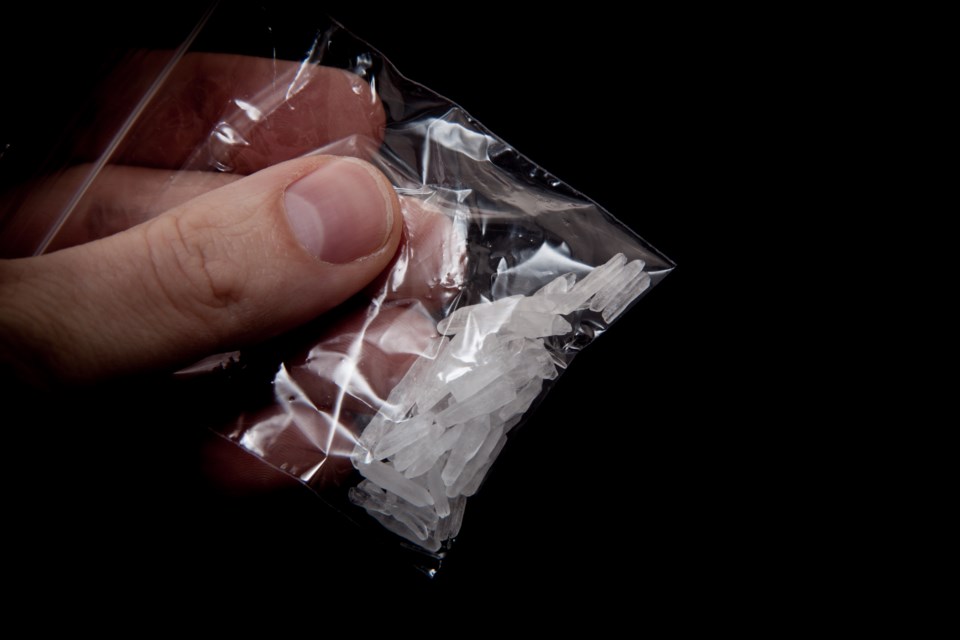The Moose Jaw Crystal Meth Strategy Committee is asking residents to help battle the opioid crisis in the community, especially since police have encountered meth more often in the last few years.
The Moose Jaw Police Service (MJPS) laid four charges for possession of crystal meth from 2003 to 2015 but laid 86 charges from 2016 to February 2021, an increase of 2,000 per cent, according to the committee.
Charges of trafficking meth have also increased during the past five years. From 2003 to 2015, there were no such charges laid, but from 2016 to this past February, officers laid 26 charges. The committee noted that charges of trafficking are laid against people with large quantities of meth they intend to sell but not against people with small quantities for personal use.
“While our local police services are responsible for keeping our community safe, there’s many things that community members can do to join forces to work together for the protection of the public from crystal meth impacts,” the committee said.
The MJPS invites and relies on the public to provide information to help solve crimes, while it also relies on officers on patrol, informants, self-admission, and Crime Stoppers.
While anonymous information can be helpful, police can’t act if the data is too broad, the committee noted. The Crime Stoppers liaison can communicate anonymously through an app called P3 Tips, but only if tipsters are willing to clarify their information.
The MJPS needs corroborating sources before it proceeds with an investigation.
“Much like putting puzzle pieces together, the more information from different sources (there is) can help create a solid case,” the committee continued.
As the police investigate, they will apply the law if there is truth to allegations. This could include making arrests or attempting to stop crystal meth from being distributed or used. Upon arrest, police can search or seize items that make up the alleged offence.
Once individuals are arrested or charged, that information is given to the legal system, and a court process follows. The Crown might recommend weekly screening, substance detoxification or treatment, or after-care programming during drug court.
Residents can assist police by staying informed and keeping an eye out for suspicious activity. According to the MJPS, crystal meth can be made by anyone anywhere. If people can’t make it, they can find it at certain apartments, in back alleys, hotel rooms, parks, or through a seller.
Some issues that would interest police include:
- unusual odours such as ether, ammonia or chemicals;
- evidence of chemical waste;
- frequent visitors at unusual times;
- curtains routinely drawn;
- windows covered with aluminum; and
- excessive amounts of trash, including coffee filters or empty soda bottles coated with residue.
If residents have tips, they can call 306-694-7600 and speak with a communications officer. The officer could ask questions for clarification, and if it appears that police can investigate, callers might be asked to leave their name and number.
If the call is about crystal meth — including illegal sales, buying, and selling — the information will go to the criminal investigations department. Conversely, the call might go to the Police and Crisis Team (PACT) if it’s about mental health.
Residents can keep the community safe from drug activity by:
- getting to know your neighbours;
- being outdoors and present in your neighbourhood;
- keeping an eye on neighbourhood activities and communicating suspicious activities to others;
- telling a trusted neighbour when you are out of town so he or she can watch your home;
- keeping the neighbourhood well lit and clean. Communities that appear well-maintained can deter crime;
- not leaving valuables in plain sight; and
- reporting suspicious activity to police such as cars gathering near a park at night or people entering and leaving a home regularly.
“Refuse to turn a blind eye to crime in Moose Jaw — it’s all about networking and communicating,” the committee added. “This will make a greater impact on crime prevention than police enforcement alone.”




